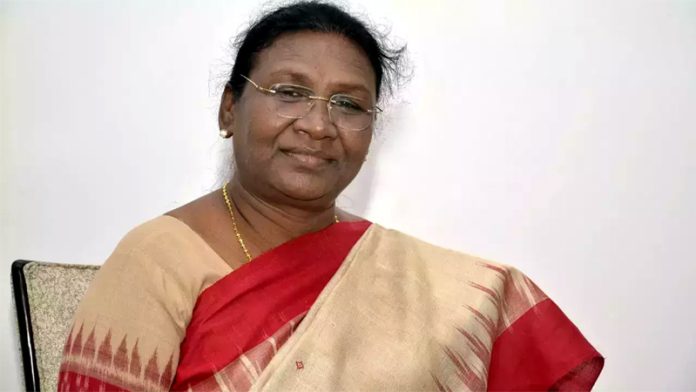President Droupadi Murmu proposed the establishment of an All-India Judicial Service to identify and cultivate the talents of exceptional young individuals from the lower echelons to the higher tiers of the judiciary. During the Constitution Day festivities orchestrated by the Supreme Court, the President underscored the impediments of “cost” and “language” hindering citizens’ access to justice. She advocated for a citizen-centric overhaul of the entire system to enhance the dispensation of justice. President Murmu’s visionary proposals bear significant importance, promising far-reaching impacts on the Indian judicial system if actualized. The assertion that only a scant few embark on a career path in judicial services resonates, pointing to a broader issue ingrained in Indian societal norms. The traditional paradigm, where parental influence dictates career choices for children, is undergoing transformation, challenging established perceptions. The metamorphosis of the Indian education system is underway through the implementation of the National Education Policy (NEP) 2020, signalling a paradigm shift towards a more pragmatic, application-oriented approach transcending traditional theoretical foundations. In tandem with this transformative wave, the introduction of an All-India Judicial Services framework emerges as a compelling imperative, serving as a much-needed avenue for legal evolution.
As the contours of educational reform unfold, a crucial facet to be considered is the career trajectory of the lower judiciary. The All-India Judicial Services envisaged as an alternative pathway, stands poised to cater to the professional progression of those in the lower echelons of the legal domain. Given the expansive nature of the legal realm, mastery of every facet proves a Sisyphean endeavour. The nuanced art of accurately interpreting the law and subsequently dispensing justice poses an intricate challenge. In a dynamic era, the transformative influence of President Murmu’s advocacy cannot be overstated. The Supreme Court has already spearheaded reforms, enhancing the accessibility and quality of the justice system. Online availability of court verdicts and the tangible reality of virtual hearings, pioneered by the Supreme Court and subsequently embraced by various State High Courts, underscore the commitment to delivering justice expeditiously.
The longstanding debate surrounding the collegium system’s replacement is conspicuous in public discourse, with the Government advocating for change while the Supreme Court staunchly upholds its continuance, citing the paramount principle of impartiality. President Murmu’s recent advocacy for an All-India Judicial Services model, akin to the IAS and IPS, is a salient proposal. By attracting the most exceptional talents to form a pool of judges, this approach addresses not only the existing bottlenecks but also mitigates language barriers through a uniform and diverse recruitment strategy. The contemporary trends in career choices among college-level students signal a departure from the historical predilection for professions like medicine or engineering. The current generation exhibits a proclivity for experimentation and exploration, making judicial services an enticing and viable option. The burgeoning interest in law as a career, evident in competitive exam scores for admission to premier law colleges, attests to the paradigm shift. However, concerted efforts are indeed needed to facilitate the seamless entry of talented individuals from higher learning institutions into the judiciary.
President’s suggestion aligns seamlessly with the evolving aspirations of today’s youth, poised to deliver impeccable performances. Embracing such a paradigm shift in the judiciary holds the promise of enhancing justice delivery. The Government, in contemplating this proposal, must meticulously weigh all facets and engage in comprehensive discussions with stakeholders to secure consensus before implementing any transformative changes. The infusion of the nation’s preeminent talent into the judicial apparatus is envisioned to fortify and invigorate the legal machinery, rendering it more resilient and attuned to the exigencies of contemporary society. These deliberations, however, remain at a nascent stage, representing preliminary overtures in the broader discourse on judicial reform. The conclusive determination necessitates a collective and comprehensive engagement of all stakeholders, marking the genesis of a collaborative decision-making process.
Trending Now
E-Paper


